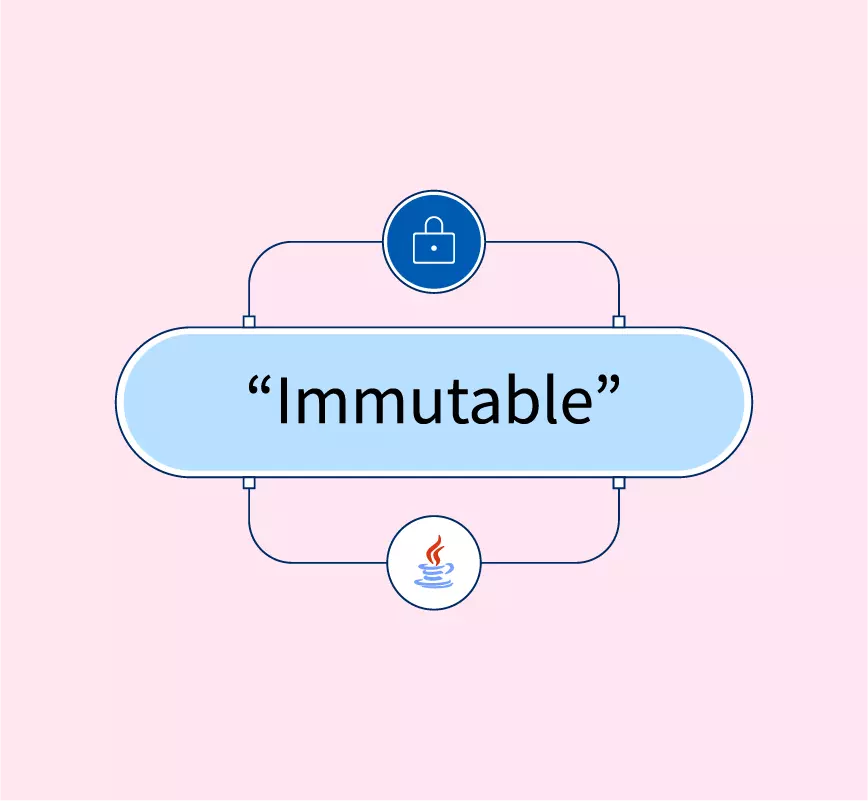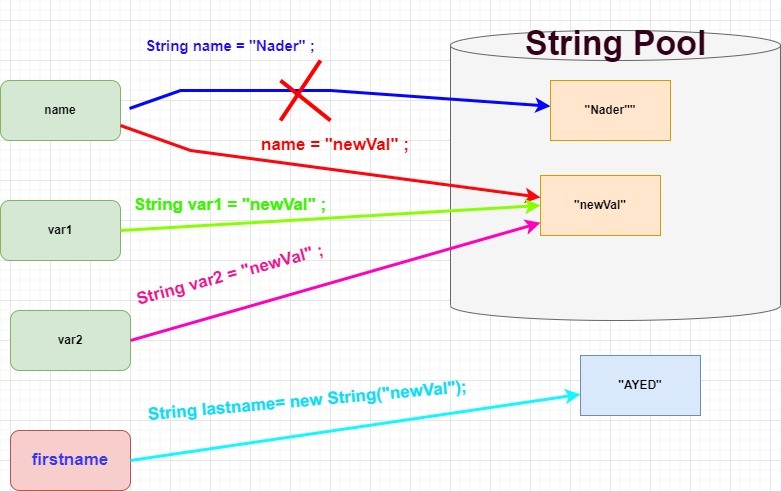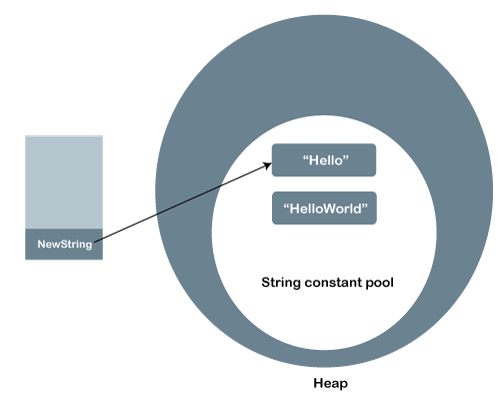Why Are Strings Immutable in Java? Comprehending the Core Principles
Why Are Strings Immutable in Java? Comprehending the Core Principles
Blog Article
Unalterable Strings: A Key Element in Ensuring Information Uniformity and Integrity
In the realm of information management, the importance of unalterable strings can not be overstated. These unvarying sequences of characters play an essential role in maintaining the integrity and accuracy of info within systems. By maintaining a state of immutability, data consistency is made certain, promoting a foundation of integrity upon which important procedures count. The principle of immutable strings transcends mere technicality; it is a linchpin in the complex web of data administration. As we explore the advantages, execution techniques, and sensible applications of unalterable strings, a more clear image arises of their indispensable nature in safeguarding the electronic landscape.
The Idea of Unalterable Strings
Immutable strings, a fundamental idea in programming, refer to strings that can not be changed when they are developed. Essentially, as soon as a string value is designated, any type of operation that appears to customize the string really produces a brand-new string. This immutability ensures information consistency and reliability in applications, as it prevents unexpected modifications to the original information.
Benefits in Data Uniformity

Information uniformity is critical in numerous facets of software program development, including database administration, multi-threaded settings, and dispersed systems (Why are strings immutable in Java?). Unalterable strings contribute substantially to attaining this uniformity by protecting against data corruption because of concurrent accessibility. In situations where numerous processes or threads interact with the exact same data all at once, immutable strings function as a secure versus race conditions and synchronization issues
Additionally, the immutability of strings streamlines debugging and screening processes. With immutable strings, designers can rely on that once a string is set, it will stay unchanged, making it less complicated to trace the resource of errors and ensuring that examination instances generate consistent results. This dependability in data taking care of ultimately results in a lot more durable and secure applications.

Applying Unalterable Strings
Making certain the immutability of strings requires a thoughtful technique to their execution in software application development. As soon as a string item is developed, one essential approach is to make string courses in a way that stops modifications. By making strings unalterable, developers can enhance data consistency and integrity in their applications.
To carry out unalterable strings successfully, programmers need to prefer developing brand-new string objects instead of modifying existing ones. This technique makes certain that as soon as a string is assigned a worth, it can not be transformed. In addition, any type of procedure that shows up to modify the string must produce a new string with the desired changes rather of altering the original.
Moreover, making use of immutable strings can simplify concurrency monitoring in multi-threaded settings. Given that unalterable strings can not be altered after creation, they can be securely shared among numerous strings without the threat of data corruption.
Duty in Dependability Guarantee
In software application advancement, the utilization of immutable strings plays an important role in ensuring the reliability of information operations. Unalterable strings, once developed, can not be customized, guaranteeing that the data they stand for continues to be constant throughout the application's implementation. This immutability home offers a degree of assurance that directory the information being refined will not be unintentionally transformed, resulting in unforeseen end results or errors in the system.
By integrating immutable strings right into software application design, developers can improve the dependability of their applications by minimizing the risks connected with mutable data - Why are strings immutable in Java?. Immutable strings help in protecting against data corruption or unintentional modifications, which can be especially essential when dealing with sensitive info or when information integrity is vital
Moreover, using unalterable strings simplifies simultaneous processing, as several threads can securely gain access to and share string data without the danger of one string modifying the material while one more is reviewing it. This facet adds dramatically to the general reliability of the software system, ensuring foreseeable and regular actions in information taking care of operations.
Applications and System Integration
The seamless integration of immutable strings right into different applications and systems is crucial for guaranteeing robust data consistency and dependability throughout varied technical settings - Why are strings immutable in Java?. Immutable strings play an important role in boosting the honesty of information exchanges and interactions within complex software environments. By integrating immutable strings into applications, programmers can alleviate the risks connected with data tampering, unauthorized alterations, and unintentional alterations, thereby fortifying the general safety stance of the system
In the context of system integration, immutable strings serve as a foundational aspect for developing protected communication networks and facilitating smooth data transfers between various elements. Their immutable nature makes certain that information transmitted in between systems continues to be proven and unmodified, decreasing the likelihood of disparities or mistakes that could compromise the honesty of the whole system. In addition, unalterable strings can enhance interoperability between inconsonant systems by giving a go to my site standard layout for information depiction, allowing extra effective information handling and exchange procedures throughout interconnected platforms. By embracing immutable strings in applications and system integration procedures, organizations can strengthen their information facilities and maintain the integrity and uniformity of their details assets.
Conclusion
In verdict, immutable strings play an important function in keeping information consistency and integrity in different applications and system integrations. By guaranteeing that strings can not be transformed when created, the stability of information is maintained, decreasing the threat of disparities and mistakes. Executing immutable strings can dramatically boost the reliability of systems, inevitably bring about more reputable and exact information processing.

Report this page